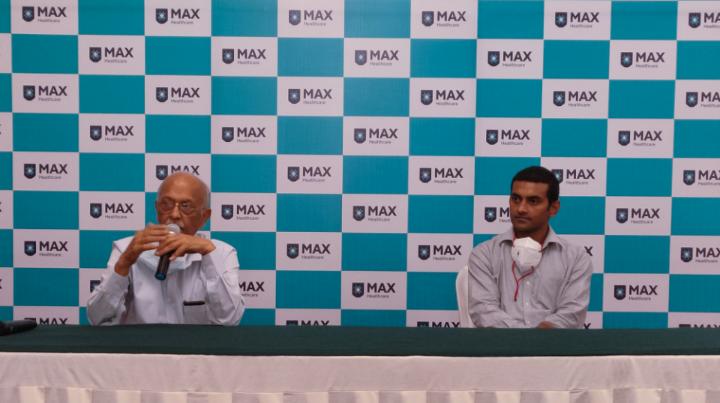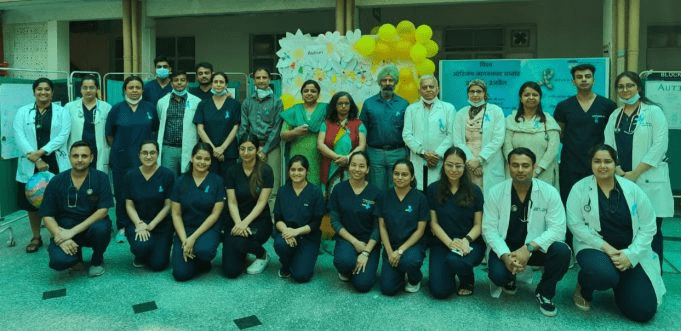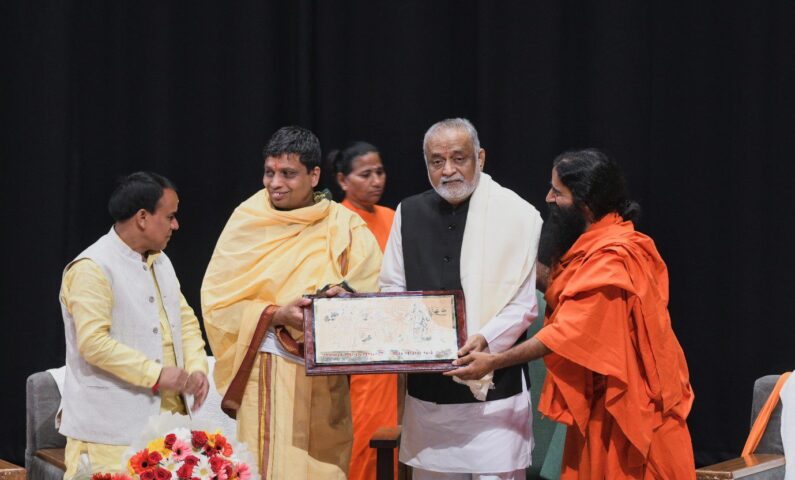
Dehradun, September 9th, 2021: In a one of its kind procedures, highly skilled surgeons at MIND (Max Institute of neurosciences department) Max Super Speciality Hospital successfully performed a keyhole brain surgery on a 44-year-old woman using the supraorbital approach. Keyhole surgery is the concept of safely removing brain tumours through smaller, more precise openings made near the eye, ear or nose that minimise damage to the surrounding scalp, brain, blood vessels and nerves. It can be done through small incisions incision with minimal signs of surgery resulting in better post-surgical cosmesis and patient acceptance.
The surgery can only be performed by trained surgeons with extensive experience in removing tumours to restore and maintain the patients’ quality of life. MIND Max Super speciality hospital’s team of neurosurgeons comprising of – (Dr A K Singh, Dr H C Pathak & Dr Kunjbihari Saraswat) has been at the global forefront of advancing these minimally invasive approaches to treat a wide range of brain tumours. The recent advances in technology and instrumentation as well an improved understanding of the brain and skull base anatomy, have enabled the removal of a majority of brain and skull base tumours through a keyhole surgery.
Sharing the details of the case, Dr A. K. Singh, Medical Advisor- Max Hospital, Dehradun & Chairman – MIND said, “A 44-year-old female approached neurosurgery OPD in Max Institute of Neurosciences (MIND) with complaints of progressive vision loss in right eye along with on and off headache for the past three years. Upon investigation via an MRI of the brain, we found a large tumour over the nasal and orbital cavities, compressing the right-side optic nerve. An extremely complicated case, we removed the tumour using the supraorbital keyhole approach. We kept the patient in the ICU for just one night and shifted her to the room the next morning and discharged her on the third day post the surgery. She was surprised to see her face and was wondering if she had actually had a surgery as there was no scarring or sign of a surgery. The joy of our patients and their positive attitudes post such surgeries are truly encouraging for us to continue with such procedures.”
Keyhole surgeries can be of various types. There is the Supraorbital approach which requires a small incision at the eyebrow and a small sized bony opening. Through this approach, skull base tumours can be removed, and aneurysms clipped. Another kind of keyhole surgery is done through the nose for removal of pituitary and anterior skull base tumours using an endoscope and requires no externally visible incision. This surgery is done for removal of pituitary and brain tumours, and to treat haematoma or brain haemorrhage. Another keyhole surgery is done through the ear or behind the ear to remove tumours in the posterior part of the brain like Vestibular Schwannomas, cerebellar tumour, and even hematoma.
Explaining the advantages of keyhole surgeries, Dr Kunj Bihari Saraswat, Consultant, Neurosurgery said, “Keyhole surgeries help avoid injury to the brain, have better cosmesis post-surgery, have less exposure to normal brain structures, are less painful and need hardly or no ICU stay as patients can be shifted to their room from post-operative room within 1-2 hours of monitoring allowing for rapid recovery, mobilisation, and return to normal activities. Discharge from hospital typically takes 1 to 2 days post-surgery. We also use the keyhole approach for clipping aneurysms as it helps reduce post-operative vasospasm or narrowing of arteries which becomes possible because of very little or zero brain manipulation.”
Dr Sandeep Singh Tanwar, Vice President- Operations & Unit Head, Max Super Speciality Hospital Dehradun, said, “We are proud to announce Minimally Invasive Brain Surgery, (keyhole) for the first time in Uttarakhand. This procedure ensures faster recovery resulting in minimal hospital stays with reduced expenses and bills. We have started this service keeping in mind our responsibility to give world class health facilities to residents of Uttarakhand”.
The Institute of Neurosciences at Max Hospital provides round-the-clock, comprehensive Diagnostic and Therapeutic Neurology services, according to evidence-based protocols set as per internationally accepted guidelines. Their casualty services are available round-the-clock for diagnosis and early management of Neurological emergencies like Status Epilepticus, Stroke and Neuromuscular Weakness, Encephalitis, Meningitis, other Neuro infectious diseases and behaviour changes.


